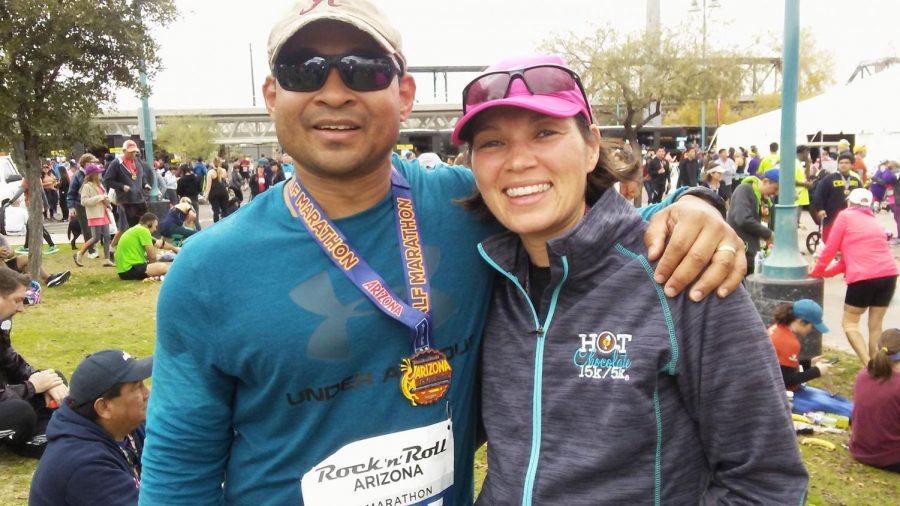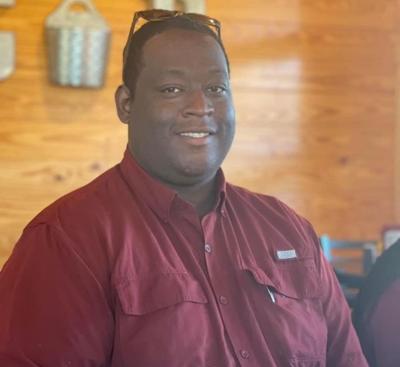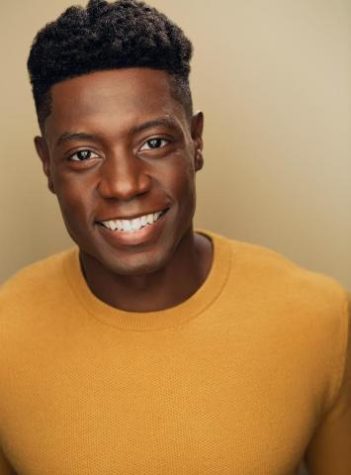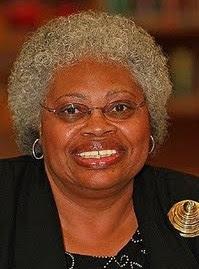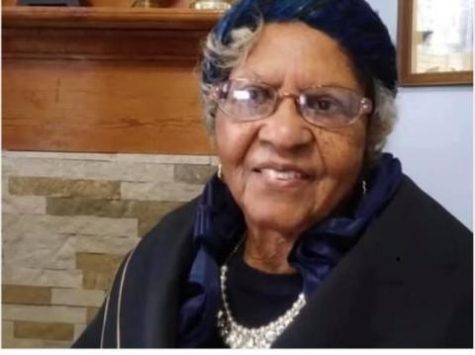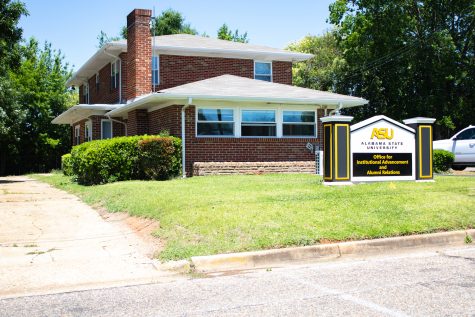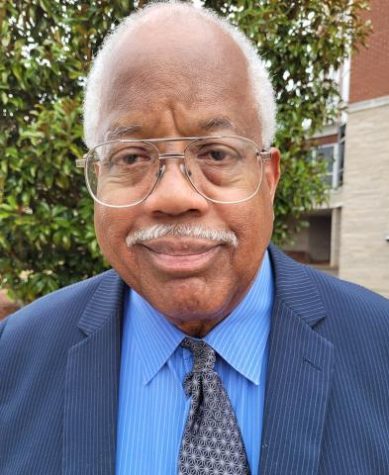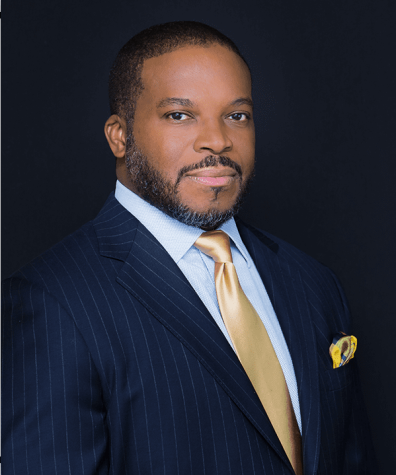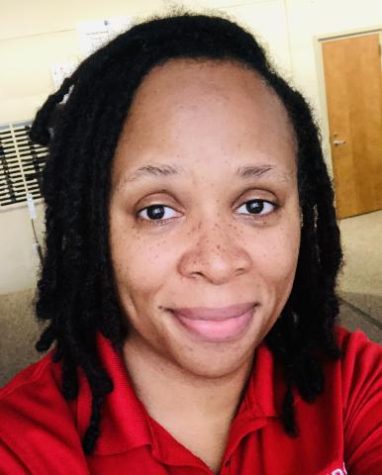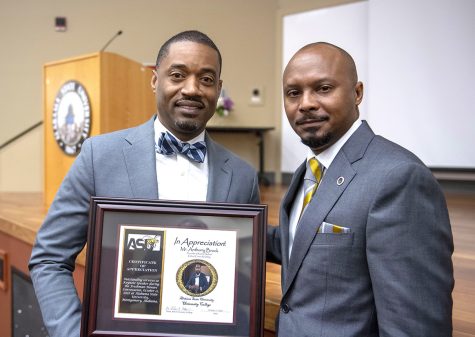Hall believes that mentorship is crucial for development
Alabama State University alumnus and Full Bird Colonel Scott Hall and his wife Rochelle take a minute from their entry into the Rock ‘n’ Roll Arizona Marathon to take a quick snapshot for memories.
March 25, 2021
The impact of a mentor on a young person’s life is immeasurable. Whether they hold the role of advising, encouraging, or teaching, mentors are the figures that bring out the best possible version of their mentees.
Academy-award winning actor Denzel Washington once said, “Show me a successful individual, and I’ll show you someone who had real positive influences in his or her life. I don’t care what you do for a living—if you do it well, I’m sure there was someone cheering you on or showing the way – a mentor.”

Alabama State University alumnus Scott Hall (2000), a full bird colonel in the United States Air Force, has experienced being both the mentor and the mentee and advocates that his promotion to colonel results from all of those lessons learned and advice offered over the years.
“I had a lot of black senior officers to look at as an example,” he said. “So now, for me, it means that I can now help other people. I can open doors. I can mentor other people.”
A Montgomery, Alabama native, Hall grew up in a close-knit family. Along with his brother, Hall was raised by his father, Leo Hall, an Air Force veteran, stepmother, grandparents, and many other relatives that lived nearby. He attended St. Jude Educational Institute, where he excelled academically and played football. As an extracurricular, he volunteered at the local YMCA, mentoring elementary school students.
“I enjoyed doing it [volunteering] and being with the kids but looking back, we did not have any training to be mentors,” he said. “We did not know what to do or talk about.”
Though he did not know how to lead properly, he made sure to remain a positive influence and role model for the children.
Upon his high school graduation in 1996, Hall received an academic scholarship from ASU and decided to join the Hornet family in the fall. With dreams of becoming an engineer, he decided that majoring in mathematics would be the best path to take.
Those times of being a new college student and making those big decisions that Hall recounts are some of his favorite collegiate memories.
“I really enjoyed that, feeling like an adult and just being on my own,” he said. Though he was still close to home, being on campus granted him a new sense of independence and accountability that he would carry with him throughout his career.
Encouraged by his father’s service in the Air Force, Hall decided to sign up for the university’s Air Force Reserve Officer Training Corps (ROTC) program. He soon realized that ROTC was more than just a course, but instead a community that would not only introduce him to many influential people but also provide amazing resources and prepare him for a career full of accomplishments.
“I went in and signed up and realized it was more than just a class,” he said. “These students had built relationships, they would do things together, they would learn about leadership, and all of these other things.” ROTC and the Detachment 019, the place where cadets gathered to hang out, study together, and fellowship, became Hall’s haven throughout the years.
From participating in ROTC, Hall was given many opportunities to be active around the Hornet’s Nest. As a color guard member, he presented the American flag and the flag of the U.S. Air Force at all major events such as parades, football games, and ceremonies.
“We would be the first ones to carry the flags,” Hall said. “We would escort Miss ASU and other big officials. That was always pretty cool.”
Also, credited to ROTC, Hall came across his first military mentor, Lieutenant Colonel James Wilson.
“He would work with cadets, making sure that we understood that this was going to be our livelihood, a paycheck,” Hall said.
Wilson guided Hall, emphasizing the importance of being successful academically while still a student, considering he would be thrown into the world of work upon graduation.
Their relationship would last far beyond ROTC Detachment 019 as Wilson was a resident at Hall’s first assignment at Wright Patterson Air Force Base in 2000. Happy to see a familiar face, Hall would often call on Wilson when in need.
“He would invite me over for dinner with his family,” Hall said. “If my car broke down, he would come and help me change the radiator and all.”
Outside of ROTC, Hall stood out academically and made impactful relationships with many of his professors. As a mathematics major, he came across several rigorous classes and even tougher instructors, but he especially remembers the teachings of John Ivery.
“He was more than just a math teacher to me. On top of instructing Calculus II, Ivery taught his students life lessons that would benefit them no matter what career path they took. He provided tough love that would force students to rise to the occasion and be the best that they possibly could. It was all out of love,” Hall said. “He was not afraid to give you a kick in the pants and tell you, ‘Hey man, you know you need to be better than that.’”
In the spring of 2000, Hall graduated with a degree in mathematics and soon after was commissioned into the U.S. Air Force as a second lieutenant.
Excited for the next stage of his life, Hall said, “I just remember feeling like I had accomplished something.”
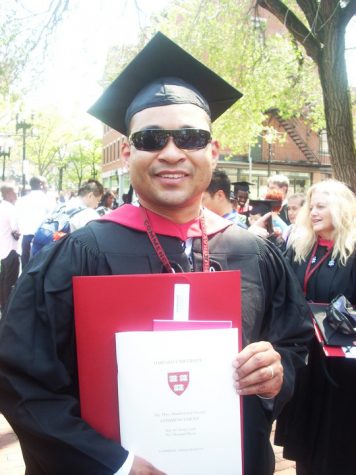
His first assignment was at Wright Patterson Air Force Base in Greene County, Ohio, where he was responsible for conducting flight tests for the B1 bomber aircraft.
“A lot of people think of the military as going to war, but I was more on the business side in the beginning,” Hall said.
Though he was surprised to be in an office setting, Hall gained experience working with other engineers, Congress, financial planners, and more. It was at this assignment where he met his wife, Rochelle Hall, and three other ASU graduates.
“We had a little ASU family,” he said. “It was nice.”
In 2003, Hall relocated to Hanscom Air Force Base, near Boston, Massachusetts, where he joined the space program and satellite communication services. While in this assignment, he was promoted to captain and began his graduate school journey at the highly recognized Harvard University.
“I left before I could finish,” he said. “My last requirement was a thesis, and it took me a while to get that thesis done.” Years later, in 2011, Hall finished his courses at Harvard, resulting in a master’s in liberal arts with a focus on government.
While still in Boston, Hall also started a mentoring program that allowed for more productive and comforting workplace culture.
In 2006, he joined a special aircraft maintenance program at Shaw Air Force Base near Sumter, South Carolina. Now leading the maintenance of F15 planes, Hall was granted his first hands-on position and promoted to major.
“That is where I got my first exposure to leading large numbers of people,” he said. “Instead of designing the planes and working with the engineers, now I was with the pilots and other maintenance roles helping execute the missions.”
In 2008, during his assignment at Shaw, Hall was deployed to Iraq for five months, where he assisted the U.S. Army in carrying out missions and also worked at the hospital on the compound.
“It was just a good experience being there,” Hall said. “Just being able to serve in any way possible.”
Hall took a position working at the Pentagon in Washington D.C. in 2010, where he worked with the HQ National Guard Bureau. This position allowed him to have an administrative role, where it was stressed that in order to lead, one must listen.
“To be in the Pentagon and be in the room when decisions are made, that is when you start to realize how much information gets exchanged to make those decisions,” he said. “That is when I learned that communication is very important.”
He returned to Montgomery in 2013 to work at Maxwell Air Force Base for a short amount of time. During his venture back home, he partook in classes at Air Command Staff College, where he received another master’s degree.
“I am kind of an academic person, so I enjoyed doing that.” Not only did he enjoy being back with extended family, but he also took the opportunity to visit Detachment 019 facility that molded him into the official that he is today. He took the role of a mentor to many, as he was able to spread his words of wisdom to the young cadets.
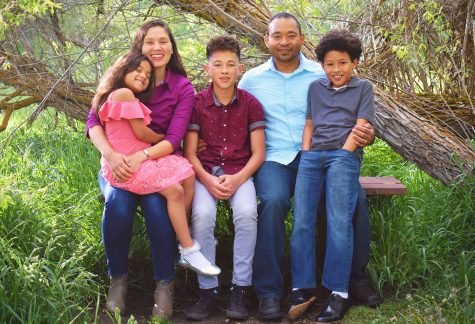
“I really liked having the opportunity to come back and give back,” he said.
After 10 months at Maxwell, Hall was assigned to Luke Air Force Base near Phoenix, Arizona, where he and his wife were both given roles as squadron commanders. In this role, he was responsible for producing pilots for the U.S, Singapore, Taiwan, Italy, and many more to fly the M16 and F35 aircraft effectively. Due to the number of countries he aided, Hall commanded a total of three squadrons and almost 2000 people.
“One squadron was 250 people, the next one was 550 people, and the last one that I commanded was 1000 people,” he said. His success led him to be promoted to lieutenant colonel. Though he held much responsibility, and therefore pressure, Hall claims that this assignment was his favorite due to Arizona’s weather and culture.
“Man, Arizona was nice,” he humorously said. “I would be outside barbecuing with shorts on in the middle of February!”
In 2017, he was reassigned to Hill Air Force Base, near Salt Lake City, Utah, where he reported to the M16 Program Office. Back in an office setting, he was in charge of foreign military sales, supplying aircraft and supplies to other U.S allies.
“It was about 29 countries that I dealt with on a daily basis,” Hall said. That was the largest international sales program in the department of defense on the F16.”
Hall viewed this position more as an act of diplomacy rather than defense. He explains that alliances cover more subjects than just the military, but the exchange of artillery works to “cultivate the relationship.”
“We were building that U.S coalition,” Hall said. “Now it is even better because these countries have the same types of systems that we have. We are able to communicate better and much more.”
A perk that comes with the position that Hall thoroughly enjoys is the international travel opportunities.
“I remember watching the Superbowl in Thailand!” he said.
In 2020, Hall relocated back to the Pentagon, where he still serves in a diplomatic role. For the past six months, he has worked with the F35 program but works more intimately with specific countries. To commemorate his 20 years in the service, he was promoted to full bird colonel, “full bird,” referring to the silver eagle insignia granted to colonels who have been in service for a minimum of 19 years.
Of course, Hall met a few bumps in the road throughout the years, but he shares that he could resolve those problems early on in his journey. He expresses that his confidence would be the cause of his complications.
“It was a lot of self-reliance in the beginning, and understanding that I did not know what I did not know was the self-awareness that I needed to accept my mentor’s advice,” he said. He would soon realize that the interactions with those mentors would become his best memories, experiences, and lessons of his time in the military.
Hall believes the most rewarding aspect of his career is the community of mentors, mentees, and friends that he has created.
“Just meeting people who were willing to take the time to educate, encourage, share experiences and support, and just overall make me a better person,” Hall said.
He stresses that throughout his journey, he was able to find guidance and companionship in many people regardless of race, gender, or age.
“They would sit me down and talk about family, about careers, about faith, and so many other things throughout the years,” Hall said.
Now hoping to give back to the younger officials, the way his mentors did for him, Hall serves as a mentor to many people in the Air Force and in his community. After being in the Air Force for 20 years, he knows that he now has decades of experience under his belt and a platform to teach from.
“I want them to be successful in their jobs,” he said. “I want them to be successful in their families. And I also want them to have the opportunity to give back and pay it forward.”
Hall’s work has resulted in him being granted many awards and medals, some of them being the Air Force Accommodation Medal, Air Force Meritorious Service Medal, Global War on Terrorism Medal, Nuclear Deterrent Medal, and more. He credits his success to, along with the influence of mentors, his affinity for people.
“I like people,” Hall said. “My philosophy has always been if you take care of the people, the people will take care of the mission.” He acknowledges that the military is an extreme exhibitor of teamwork. In order for the goal to be met, all workers must be well accounted for physically, spiritually, and emotionally.
Hall also credits his success to the work ethic that he adopted while a student at ASU. He appreciates the high expectations that his Hornet instructors set, as they forced him to rise to the occasion.
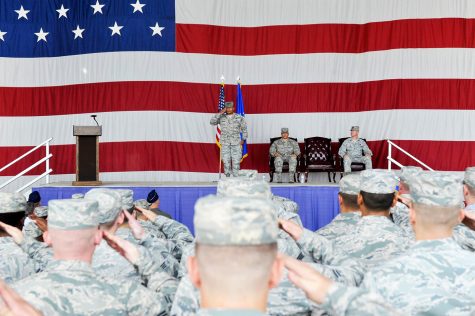
“I have yet to meet a professor at ASU that will give you anything, and that is important because when you get out on your own, no one is going to give you anything. You are going to have to work for it,” he said. Along with the work ethic, he believes the education that he received as a Hornet is unmatched as he was able to tackle any position and problem that came his way confidently.
Today, Hall lives prosperously in Washington, D.C. while balancing his professional and personal life. He has been married to his wife Lieutenant Colonel Rochelle Hall for 18 years; they share two sons, Josiah and Joseph, and a daughter, Langston Anna. He is proud to have had a hearty career while also maintaining an active role in his family’s lives.
“It has always been my goal to not only provide financially but also be active as a husband and father… If your family is not right, then it is going to be hard to fulfill your job,” he said.
In his free time, Hall enjoys participating in his church’s ministries, coaching his son’s sports teams, and fitness as he and Mrs. Hall take part in half-marathon races.
Along with other individuals, Hall is working to establish an ASU ROTC Alumni Association, allowing veterans to give back to the cadets in many ways.
“We are doing this with the intent to give back to the Detachment and back to this school,” Hall said. “We want to give these cadets a strong foundation.”
Through the association, Hall hopes to establish a scholarship fund, mentorship programs, and a celebration for the 50th anniversary of the Detachment.
Until his alumni association takes off, Hall plans to give back to the ASU students through advice. For cadets in ROTC, he urges them to take advantage of all that the military offers.
“ROTC is a great opportunity,” Hall said. “You just do not realize how many resources that the military provides.”
He said that he would not have been able to pursue both master’s degrees, and other special programs, without the military’s assistance. He also makes the point that regardless of if you choose to have a long-running military career or not, that the discipline and training that the military provides is universally attractive to other businesses, making it easier to find civilian work.
To the entire student population, Hall emphasizes the importance of remaining focused and being mindful of distractions.
“Hang in there. Just stay committed to the goal,” he conveys. “While in school, there are a lot of distractions because while ASU provides a good education, it is also just a good life being there.”
He also emphasizes the importance of remembering the real reason why students attend college in the first place — to graduate.”


